Rob Burrow inspires new touring exhibition to raise awareness of motor neurone disease
It’s also the number of stories from people affected by motor neurone disease that are featuring in a new photo exhibition launching today.
Inspired by Rob, who was diagnosed with the disease in 2019, the pop-up exhibition, presented by Leeds Hospitals Charity, aims to raise awareness of MND and support fundraising for the charity’s appeal to build the new Rob Burrow Centre for MND in the city.
Advertisement
Hide AdAdvertisement
Hide AdRob and his wife, Lindsey, are patrons of the charity and are due to attend the exhibition launch today. It will be the first time that they have seen the exhibition stories in full. “I don’t know how I’ll react,” Lindsey says. “I think when you’re going through it, because life is so busy, you just get on with things…I think it will be quite emotional reading those stories, living through it and being able to put yourself in those shoes.
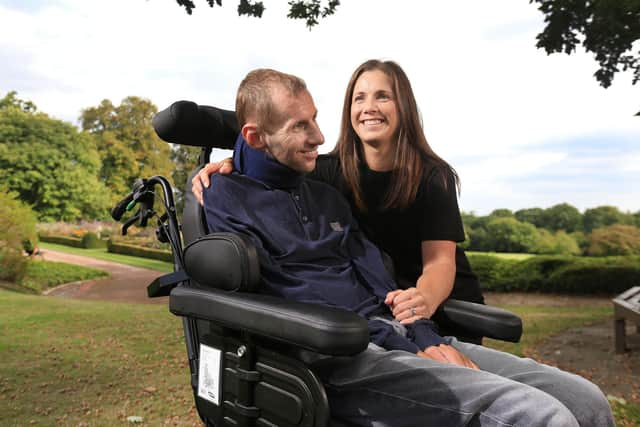

“Rob will be proud and also probably inspired by reading some of the stories. As much as Rob has helped those people, I think it will help him as well to know that he’s not alone and to see the impact of how his story has helped others. I think that will inspire him to keep fighting his best fight.”
7 Stories of Motor Neurone Disease is being unveiled at Leeds railway station, before touring across the city. Many of those featured in the exhibition have also signed up to the first Rob Burrow Leeds Marathon in May next year to help raise funds for the new centre, which will be run by Leeds Teaching Hospitals NHS Trust.
The first of its kind in Europe, the centre’s design will be led by the holistic needs of patients and their families, creating a supportive and uplifting environment to complement the expert team providing the care. Almost half the target funds for the centre have already been raised.
Advertisement
Hide AdAdvertisement
Hide AdMND is a life-shortening disease with no cure, which affects the nerves in the brain and spinal cord. Although the disease will progress, symptoms can be managed to help achieve the best possible quality of life.
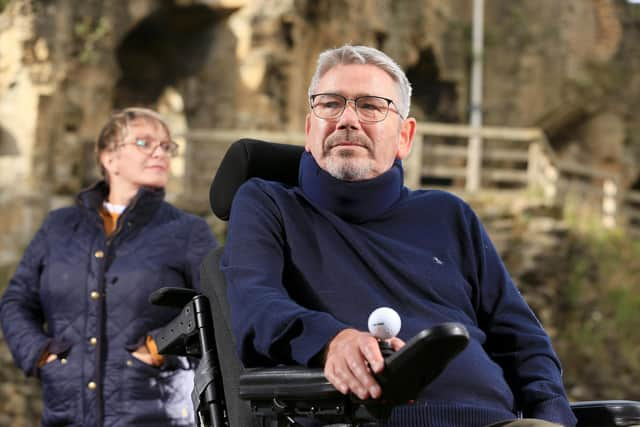

“The centre will have a lasting legacy for people diagnosed today but also for people in the future,” Lindsey says. “It won’t make the diagnosis any easier but it will mean they are getting the best possible care in an environment suited to their needs.”
Rob and his family continue to raise awareness of MND, allowing people to see how motor neurone disease affects thousands of families in the UK, every single day.
For Rob, one of the hardest things is the impact the disease has had on his relationship with his children, Macy, Maya and Jackson.
Advertisement
Hide AdAdvertisement
Hide Ad“It’s difficult for him, not being able to do the hands on things, picking the kids up, throwing them around, things you take for granted,” Lindsey says. “It’s not until those things are taken away from you that you realise they mean so much. That’s definitely the hard part, what it’s robbed Rob of.
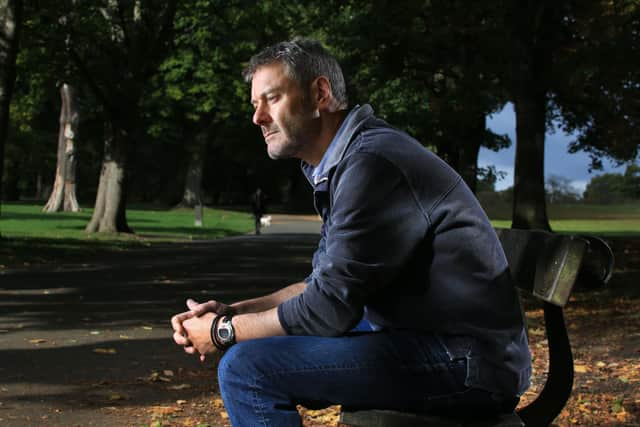

"Rob will say I’m not able to be the dad I want to be and he still is in many ways but he can’t interact with the children, he can’t get down on the floor and tickle Jackson or play a board game or read the girls a bedtime story. That’s what it has taken away from Rob.”
For Lindsey, life is a constant juggle, meeting Rob’s care needs, raising the children, and working part time. “I do sometimes feel I’m on a sinking ship and just about keeping my head afloat,” she says. “There are days when you think oh my goodness, when everything goes wrong, you’re late for the school run, but I think that’s life. We all have those days.
"Because Rob is so positive, you look at his situation and it hits home and puts things into perspective. You think what have I got to moan about? Rob is so positive despite the situation he is in and everything he faces and it ripples through the whole family.”
Advertisement
Hide AdAdvertisement
Hide AdDr Agam Jung, consultant neurologist at Leeds Teaching Hospitals NHS Trust, says the exhibition “feels like a really important step forward” in helping people to further understand MND, building on the work of Rob and his family.
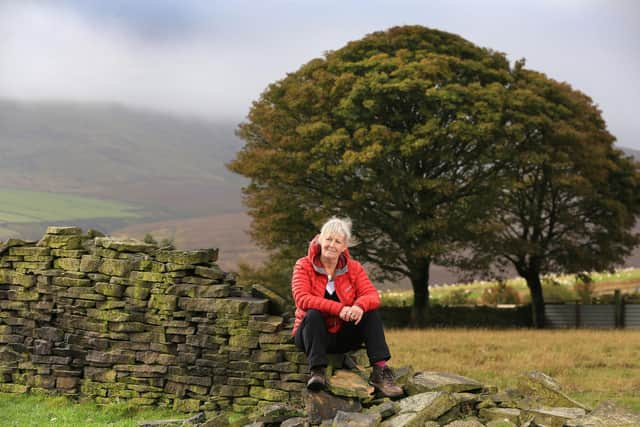

“I am fortunate to work with, and care for, so many more people like those who have shared their stories for this exhibition,” Dr Jung says. “Despite the devastating nature of this condition, this is a really uplifting collection of stories that gives a voice to the people who have felt the impact of MND. My hope from this is that more people will understand what it is like to live with the disease, and why it’s so important we have the right facilities to care for them.”
The photography exhibition will tour to the following sites:
4th – 24th November: Leeds Train Station
24th November – 12th December: Kirkgate Market
12th – 27th December: Dortmound Square
9th Jan – 30th January: Briggate
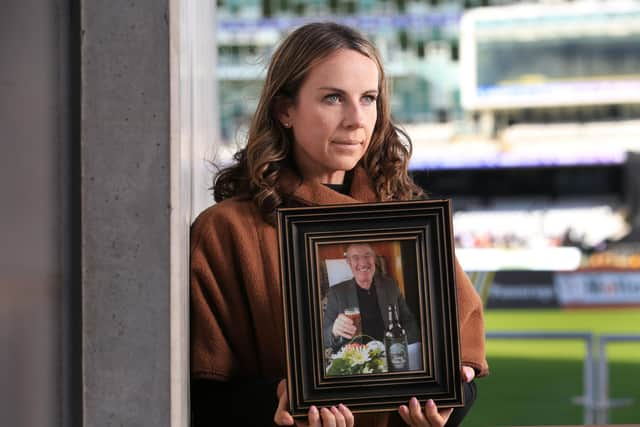

6th Feb – 25th February: Leeds Corn Exchange
1st March – 31st March: Merrion Centre
1st April – 26th April: Crossgates Centre
26th April – 11th May: Lands Lane (outside WHsmith)
12th – 14th May: Headingley Stadium (event village)
To donate to the Rob Burrow Centre for MND appeal visit www.leedshospitalscharity.org.uk/mnd-centre-appeal
The seven stories:
Rob Burrow
Advertisement
Hide AdAdvertisement
Hide AdRugby league star Rob Burrow, 40, was diagnosed with motor neurone disease in December 2019 and can no longer walk or talk, communicating through a keyboard controlled by his eyes.
Rob played more than 500 times for Leeds Rhinos over 16 years. His rugby shirt was the number seven.
“The ‘7 Stories of MND’ photography exhibition helps to showcase the enormous and devastating impact of MND. More needs to be done to help people with MND, in terms of research and holistic support.
“The new Rob Burrow Centre for MND will have a lasting legacy for people diagnosed today, and in years to come. It will be a haven for patients and their families-a peaceful environment with the best possible care, helping them to live in the now. I am still defying the odds, with a smile on my face. I won’t give up until my last breath. I have too many reasons to live.”
Ian Flatt
Advertisement
Hide AdAdvertisement
Hide AdIan Flatt was diagnosed with MND in 2019 and is under the care of the same dedicated team as Rob Burrow at Seacroft Hospital, where the MND centre is currently based.
His symptoms started late in 2017 with spasms and a weakening of grip in his hands. He later had to give up work due to fatigue.
Ian focuses on quality time together with his wife Rachael and daughters Charlotte and Iseabail. With their support, he has raised thousands of pounds for charity with challenges including trekking through the North York Moors in his off-road wheelchair and scaling Snowdon.
He says: “It’s thanks to the critical help, compassion, expertise and kindness provided by the specialist MND team in Leeds, that my family and I have maintained our sense of fun, and our wonderful ability to laugh with each other. Whilst my mobility, dexterity and respiratory functions are failing, my sense of adventure remains intact.”
John Hamlin
Advertisement
Hide AdAdvertisement
Hide AdDr John Hamlin, 53, is a consultant gastroenterologist at Leeds Teaching Hospitals. His wife Susie, who worked as a senior dietitian on the liver transplant unit, died aged 45 from MND.
“Susie wasn’t defined by her diagnosis,” he says. “She was defined by her friends and family and the people who loved her. Her legacy is her gorgeous kids, and the happiness she brought to everyone else.”
To mark what would have been Susie’s 50th birthday, John ran 165 miles in eight days from Melrose rugby club in Scotland to Headingley rugby club in Leeds, inspired by Rob Burrow, and Doddie Weir, a former rugby union player also diagnosed with MND.
“It needs to be highlighted just how cruel MND is. The disease slowly paralyses previously fit, healthy people and dramatically cuts short their lives…It is a significant disease, with a significant impact, not just on the patient but on the family and friends around them.”
Jude de Vos
Advertisement
Hide AdAdvertisement
Hide AdJude de Vos’s son Jody died of MND in 2017, when he was aged 38. Since then, Jude has climbed Ben Nevis to raise funds for the Rob Burrow Centre for MND appeal.
Jody was living in Australia at the time of his diagnosis. “Jody insisted he needed some time to take in his devastating diagnosis,” Jude says. “I was desperate just to go and give him a huge hug and be there. He had already started having difficulty swallowing, and saying words.
“When it was right for Jody, I flew over. He arranged time off work and we went back packing together. He wanted to make memories. The memories will be with me forever. If we’d have left it three or four months, it would have been too late. He declined so rapidly.”
Jude says focusing on the fundraising appeal for the new MND centre has offered “a way for me to look forwards”.
Katie Dowson
Advertisement
Hide AdAdvertisement
Hide AdKatie Dowson, 39, from Ilkley has raised more than £10k for charity in honour of her dad, Warren, who died of MND in 2018.
“My dad’s motto was to just get on with it. He did this so well, but he was dealt with one sledgehammer blow after another. There were days when we felt so helpless, we just had to look away and cry. We never wanted to cry in front of him when he was being so strong.”
Not long after his diagnosis, Katie planned her first fundraising activity and has now done nine challenges in her dad’s honour. She is planning to run the Rob Burrow Leeds Marathon next year.
“Dad didn’t live to see all of my challenges, but I know he would be proud. He was bowled over by the care and love from people–strangers who were caught up by his story.”
Kerry Everett
Advertisement
Hide AdAdvertisement
Hide AdKerry Everett, 50, takes part in charity runs in memory of her brother, Scott, who died from MND when he was 48 in July 2019.
“Scott started to decline massively in spring 2019,” she says. “For someone who was a perfectionist and liked to be in control, it was heartbreaking to watch him have to be dependent on others for the simplest of tasks and ,worst of all, not be able to pick up his little girls and give them a cuddle.”
Kerry has signed up for the Rob Burrow Leeds Marathon next year.
“I entered straight away and will feel so proud to be part of something so special. Scott will be there with me in spirit and it's him and all the other MND warriors that will keep me going. As we say in our Run MND Facebook group there's #Nofinishlinetillacure and I'll keep going until then.”
Louise Jordan
Advertisement
Hide AdAdvertisement
Hide AdLouise Jordan, 61, a GP, was diagnosed with MND in 2021. She is now unable to speak, has a facial palsy, her swallowing is hampered and she can only manage a fairly soft diet and to eat very slowly.
“People assume you are also deaf and stupid; they feel the need to over articulate or write something down,” she says. “As they are only trying to be kind, it is difficult to point out that they are humiliating me. Frustration and humiliation are my biggest emotions - even more than my sadness, which is pretty overwhelming at times.”
Louise’s career has prioritised end-of-life care and she has been on many journeys with patients with MND. “I have always been motivated to raise awareness and ensure as many solutions as possible are found to improve their quality of life. I am now on the other side of the coin.”
